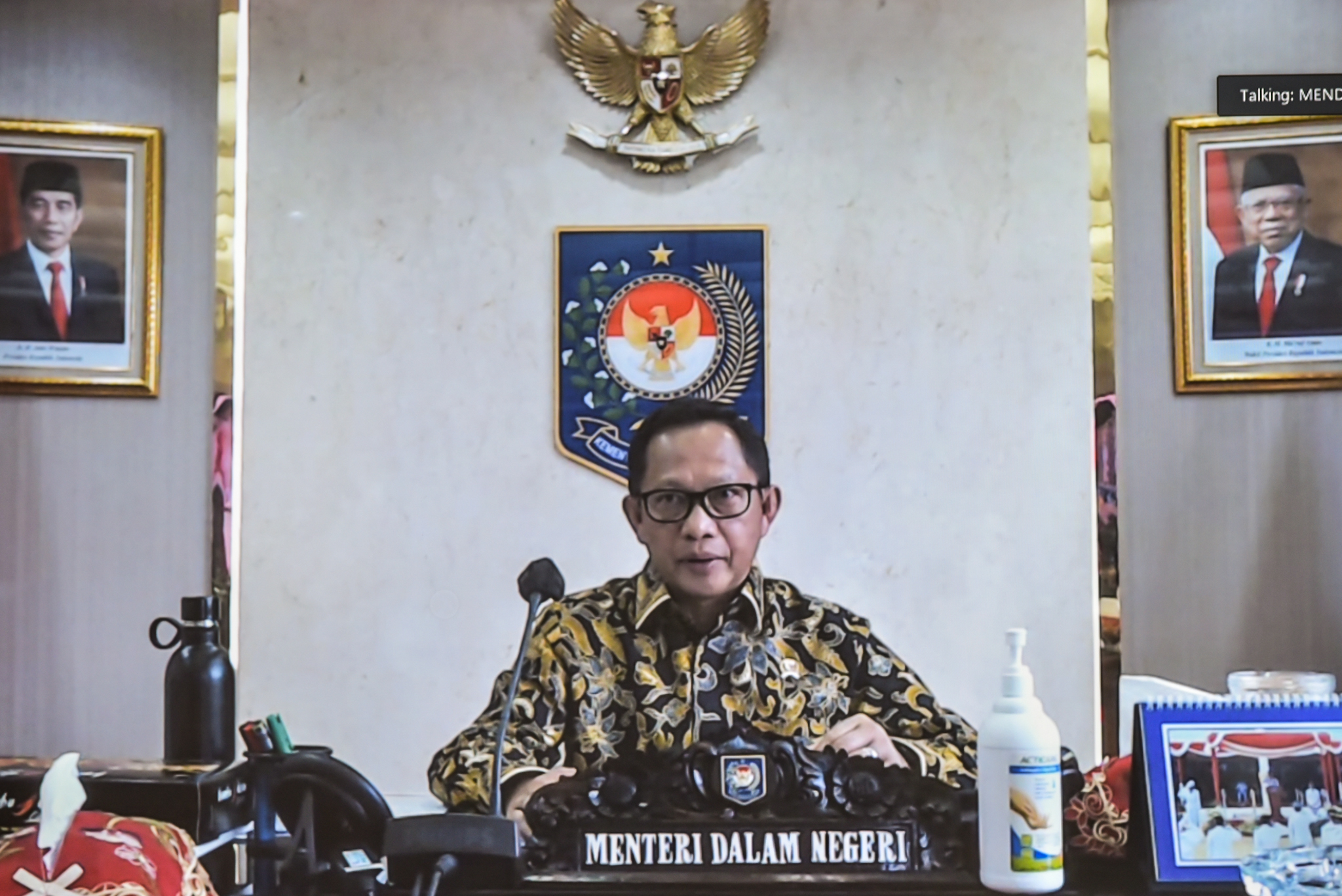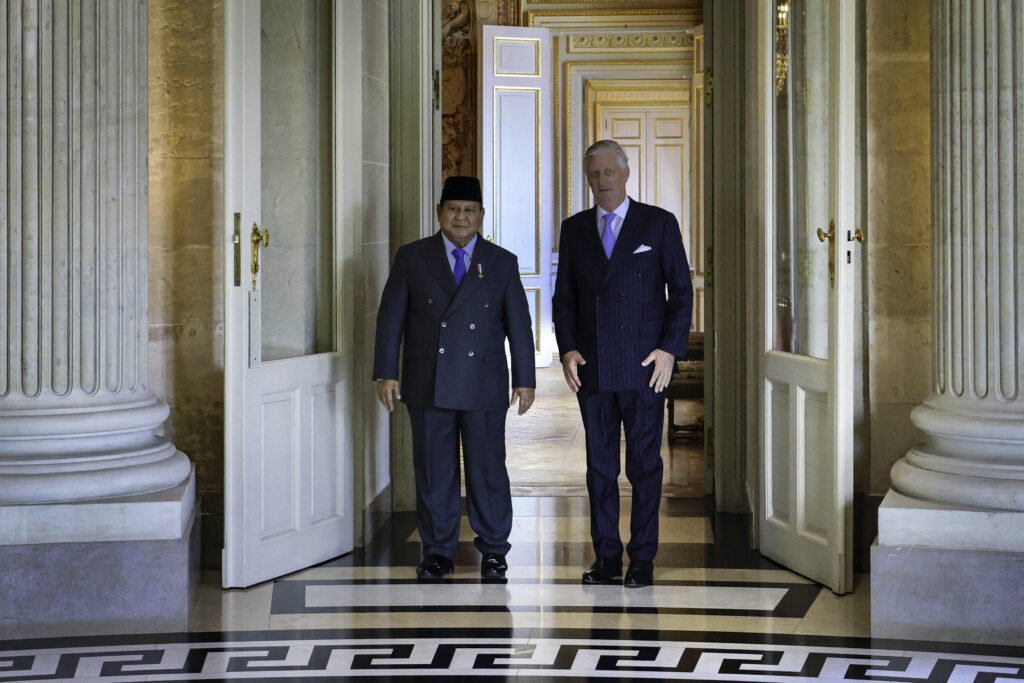Year-end Regional Elections is Political Decision Made by Gov’t, KPU, Bawaslu

Minister of Home Affairs Tito Karnavian delivers press statement after a virtual Limited Meeting on Tuesday (8/9). (Photo by: PR/Agung)
The organization of the 2020 Regional Head Elections is a political decision that has been discussed by the House of Representatives (DPR), the Government, the General Elections Commission (KPU), the Election Supervisory Agency (Bawaslu), the Election Organization Ethics Council (DKPP), and also involves the health authority.
During a press conference after a virtual Limited Meeting on Tuesday (8/9), Minister of Home Affairs Tito Karnavian stated that the President has also issued Government Regulation in Lieu of Law (Perppu) Number 2 of 2020 to regulate this matter and it has been passed into Law Number 6 of 2020 by the DPR.
According to the Minister, this year’s elections are indeed an extraordinary event because it will take place during the pandemic.
“We do not know when the pandemic is over, thus by upholding optimism, the elections which initially planned to be held in September based on mandate of the Law, will be postponed to 9 December,” he said adding that the KPU, in June, issued a regulation regarding all stages of the elections.
From the security aspect, there are two things that must be anticipated. “The first is the acts of anarchy, violence, intimidation, and others which were also the main focus in the previous elections. The second is to anticipate and prevent the transmission of COVID-19,” he explained.
Tito thus asserted that we must anticipate violence and spread of COVID-19 in all stages. For the record, the first stage had been started in June.
There are several completed stages which are considered prone to virus transmission including verification of candidates which was held from 24 June – 12 July.
“Thank God, door-to-door verification by the KPU officers which also involved volunteers was well-executed without creating new clusters,” he stated.
On that occasion, the Minister also said that data of approximately 105 million voters recorded by the population and civil registration offices was submitted to the KPU for data matching and update. Data matching was conducted door-to-door by the KPU officers on 15 July-13 August without creating new COVID-19 clusters.
He also reminded that the registration of candidates which usually involves the masses, and supporters is prone to virus transmission. Thus, the Ministry, KPU, and Bawaslu have conducted several meetings since July to draft a regulation on COVID-19 health protocols during the elections.
“It means that we have anticipated the spread of COVID-19 in all stages starting from the registration of candidates, rally, voting, and vote counting,” he said. (FID/EN)
Translated by : Rany Anjany
Reviewed by: Mia Medyana








